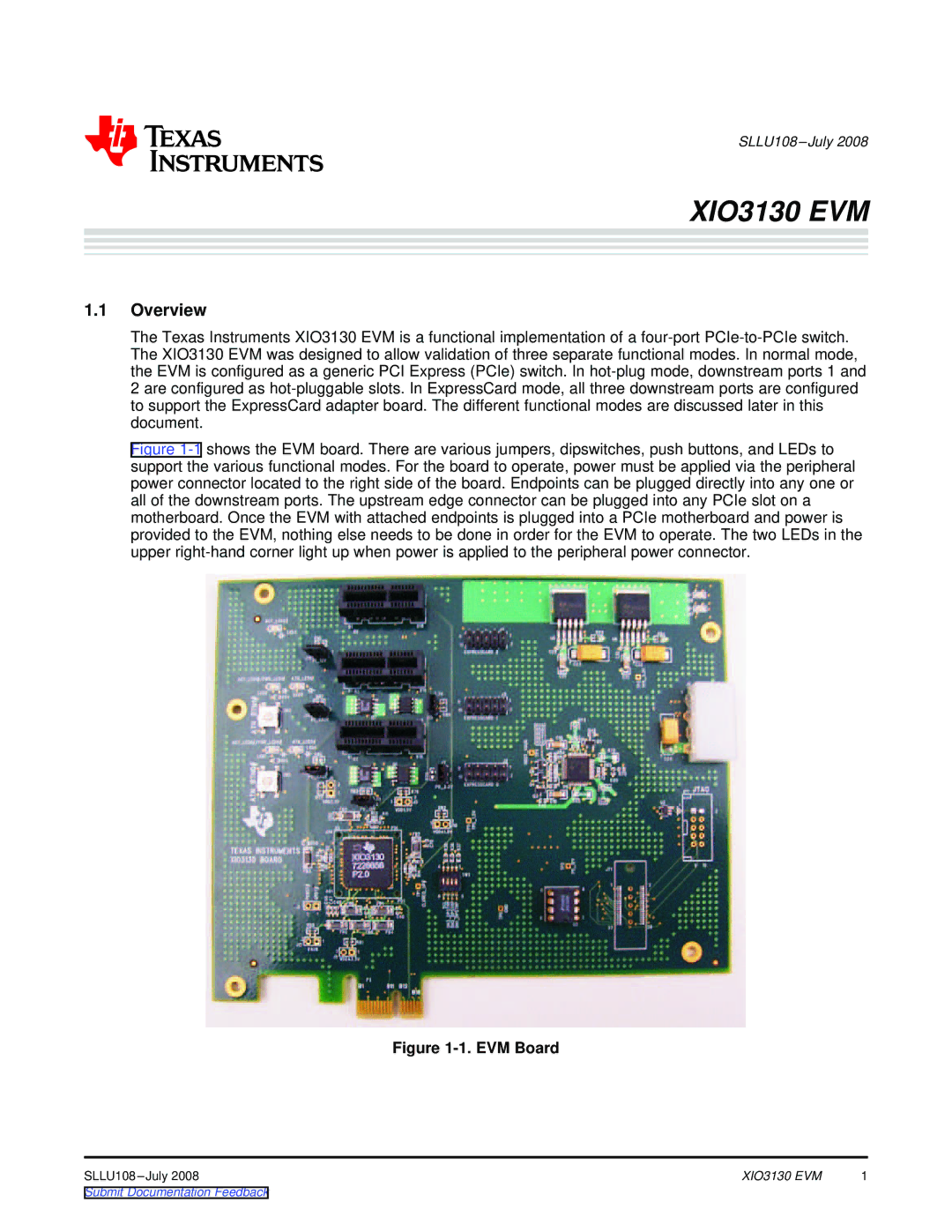XIO3130 EVM specifications
The Texas Instruments XIO3130 EVM (Evaluation Module) serves as a powerful tool for developers and engineers looking to evaluate the capabilities of the XIO3130 device, which is a high-performance USB to I2C bridge. Designed to facilitate easy integration of I2C devices with USB hosts, the XIO3130 EVM streamlines the process of developing I2C-based applications.One of the standout features of the XIO3130 is its ability to interface between USB hosts and multiple I2C devices, making it ideal for applications requiring communication across diverse devices. The XIO3130 supports full-speed USB 2.0 operation, ensuring robust performance while maintaining compatibility with a wide array of USB hosts. Its advanced I2C support allows developers to connect to various sensors, microcontrollers, and other peripherals, providing flexibility in design.
The evaluation module supports a wide voltage range, typically from 3.3V to 5V, allowing it to operate seamlessly with multiple I2C devices. Additionally, the XIO3130 features a programmable I2C clock speed, typically up to 1 MHz, which caters to different application requirements, from slow, legacy I2C devices to high-speed communications.
Another significant characteristic of the XIO3130 is its built-in power management capability. The device features low power consumption modes, making it suitable for battery-operated applications where energy efficiency is critical. This capability is complemented by the XIO3130’s flexibility in supporting multiple I2C bus configurations, which allows it to act as both a master and a slave device.
In terms of connectivity, the evaluation module facilitates easy access to the I2C interface via standard connectors, allowing developers to quickly prototype and test their designs. The onboard LEDs provide visual feedback on power status and data transmission activity, simplifying debugging and monitoring.
The Texas Instruments XIO3130 EVM comes complete with comprehensive software support, including drivers for popular operating systems, simplifying integration into existing projects. With its robust features, versatile technologies, and ease of use, the XIO3130 EVM empowers engineers to accelerate their development processes and bring innovative I2C-based applications to market quickly. Overall, it is a valuable resource for those looking to harness the capabilities of USB to I2C bridging technology.

